- Home
- Alison Weir
Six Wives of Henry VIII Page 24
Six Wives of Henry VIII Read online
Page 24
During the first months of 1529, Henry was showering Anne with jewels. His account with his goldsmith, Cornelius Hayes, settled at the end of March, records gifts of diamonds, rubies, bracelets, borders of gold set with gems, pearls for edging sleeves, heart- shaped head ornaments and diamond brooches. In April, Anne took it upon herself to perform a duty normally reserved for anointed queens, that of blessing rings for distribution amongst those afflicted with severe cramps.
By May 1529, she was making headway. With the help of Norfolk, Rochford, Suffolk and their supporters, she had begun to convince Henry that Wolsey had not advanced his nullity suit as energetically as he might have done. When Wolsey denied this, Henry would not listen, and the Cardinal was driven to pleading with the French ambassador to urge Francis I to use his influence in Rome to 'forward the divorce'.
Campeggio, seeing Anne with the King, thought Henry's passion 'an extraordinary thing', and told the Pope: 'He sees nothing, he thinks of nothing but Anne. He cannot do without her for an hour, and it moves me to see how the King's life, the stability and downfall of the whole country, may hang on this.' The King was constantly 'kissing her, and treating her as if she were his wife'. In spite of this, Campeggio was nevertheless almost certain that the lovers 'had not proceeded to any ultimate conjunction'.
Future queen she might be, yet Anne remained exceedingly unpopular with the King's subjects. The notoriety of his 'great matter' and the public enmity displayed towards Anne Boleyn had for some time been a matter of concern to the King. He was horrified to learn that the main topic of discussion among all classes of society was his private life. 'Lack of discreet handling must needs be the cause of it,' he told Anne. Katherine's supporters also felt that such public exposure could only be injurious to her cause. In November 1528, the King had invited his subjects to Bridewell Palace, and, standing before the throne, resplendent in his robes of estate, he had done his best to justify his need for an annulment of his marriage, reminding his audience how peace had prevailed during his reign, and confiding to them his fear of dying without a male heir to succeed him, when, 'for want of a legitimate King, England should again be plunged into the horrors of civil war'. This, he had assured them, was his only motive, and, as touching the Queen, if it was judged that she was his lawful wife, nothing will be more pleasant or acceptable to me, for I assure you she is a woman of most gentleness, humility and buxomness - she is without comparison. So that if I were to marry again, I would choose her above all women.
When he had gone, many Londoners expressed compassion for him, some said nothing, and others were of the opinion that he should never have raised the matter in public. Nevertheless it had been a shrewd move: it had enlisted the sympathy of a section of the public who had hitherto been hostile, and who would now be more aware of the wider issues involved in the 'great matter' and perhaps not be so eager to listen to wild gossip.
Henry's speech had failed in one respect: it had made no impact on the hatred felt by the public for Anne Boleyn. Not only did they see her as a whore and an adulteress, but also, latterly, as a heretic who had succumbed to the lure of Martin Luther's teachings. Anne herself was to some degree responsible for this, although she was not, and never would be, guilty of heresy. She had been brought up in the traditional Catholic faith, and would continue to observe its rites faithfully until her death. Not until the final week of her life would she display the kind of religious devotion exhibited by Katherine of Aragon, yet she was sincere in her beliefs, and became more interested in religious matters as she grew older.
Anne was never a Lutheran - a term not invented until 1529. She was, however, like her father and brother, a fervent champion of the movement for reform within the Church, and she took an enlightened view of so-called heretical literature. She was so interested in it, and presumed upon her influence with the King to such an extent, that she openly read books that he had banned in England, and even asked Henry for his opinions on them. One such book, The Supplication of Beggars by Simon Fish, argued the case for translating the Scriptures into English so that all could read them. Anne was sent this from abroad in 1528 and showed it to Henry, telling him that Fish had fled from England for fear of persecution by Wolsey. The King read the book, which also argued an early form of communism, and decided it should remain on the banned list, but he did not censure Anne, and allowed her to continue reading works like it unchecked.
In 1529, Anne's copy of another forbidden book, William Tynedale'sThe Obedience of a Christian Man, and how Christian Kingsought to Govern, found its way into Wolsey's hands. Discovering this, Anne went straight to the King, begging him on her knees to help her retrieve it. At Henry's command, the Cardinal returned it personally to Anne, knowing he could not touch her in spite of the heresy laws. Anne then lent Henry the book, which challenged the authority of the Pope and his cardinals; he expressed approval, being impressed by some of the arguments it contained, and declared it 'a book for me and all kings to read'.
Thanks to Anne's influence over him, Henry, increasingly disillusioned with the Church of Rome, was becoming more interested in the subject of reform and more liberal in his views, although his observance of his faith was as conventional as ever. It was apparent that if Anne became queen, there might be radical changes in the Church, and while this prospect elated some people, others trembled at it.
In January 1529, Queen Katherine lodged an appeal in Rome against the authority of the legatine court. During the previous months, she had not been idle, but had marshalled her defences to the best of her ability. In October, she had announced that she had in her possession a copy of a brief of dispensation purportedly issued by Julius II in 1503 at the request of Queen Isabella, which provided for Katherine's marriage to Prince Henry while assuming that her first marriage with his brother had been consummated. If genuine, the existence of this document would demolish the King's argument that his marriage was uncanonical because Katherine had been his brother's wife in the fullest sense. The brief differed from the original bull of dispensation in that it omitted the word 'perhaps' when referring to whether or not the first marriage had been consummated. Yet as no one until now had ever heard of the brief's existence, the King and his councillors concluded that it must be a forgery given to the Queen by Mendoza. Mendoza had indeed given Katherine the copy, but he insisted that the original, in the possessionofthe Emperor, was genuine. The Council therefore decided that it must be removed, by fair means or foul, from the imperial archives and destroyed. Katherine was duly instructed to send to Spain for it, and had no alternative but to comply, although she guessed that once it was in England the brief, genuine or not, would conveniently disappear.
The original brief was filed among the papers of the late Dr de Puebla, but the Emperor, no fool, would not part with it. Wolsey insisted that a search be made for the copy that should be in the Vatican archives, and sent a five-man embassy to Rome for the purpose. As well as finding the brief and checking its authenticity, they were also to ask the Pope if the King could follow Old Testament precedents and have two wives, the issue of both being legitimate!
Meanwhile, the Emperor sent yet another copy of the brief to London with a subscription attesting it to be genuine, signed by the most eminent Spanish bishops in his presence. Nevertheless, both Wolsey and Henry suspected trickery, and Wolsey asked the Pope to declare the brief a forgery, knowing that, if Clement agreed to do so, the Queen's case would founder. Clement, however, refused. The English envoys could find no record of the brief at the Vatican, and two English divines sent to Spain to see the Emperor's copy wrote to Wolsey in April 1529 to say that it was undoubtedly a forgery. After that, Katherine realised that it would be useless to produce her copy as evidence at the legatine court; her case would have to stand on its own merits.
That April, Henry ordered her to choose the lawyers who would act as her counsel; she could pick from the best in the realm, he said. She chose Archbishop Warham, the Bishops of Ely and St Asaph, and her stau
nch supporter, John Fisher, Bishop of Rochester. In naming them, she had shown herself to be an obedient wife, though she still refused to acknowledge the authority of the court. Staunch as her counsellors were, they remained her husband's subjects, and if the verdict should go in her favour, the King's anger, and Anne Boleyn's, might be visited upon them. She did not therefore expect them to give her totally disinterested advice. If the case was heard in Rome, however, she would have more chance of receiving an impartial judgement, and on 16 June, she made yet another formal protest against the legatine court at Baynard's Castle and again appealed to the Pope to hear the case in Rome.
Very little was accomplished with regard to the 'great matter' during the early months of 1529, mainly due to the illness of the Pope, but by March Clement had recovered, and the judicial machinery began to grind slowly into action. Henry was warned by his ambassador in Rome that 'the Pope will do nothing for your Grace'; Clement's hands were well and truly tied by the Emperor, and he told Stephen Gardiner that it would be better 'for the wealth of Christendom if the Queen were in her grave'. Henry, hearing rumours that the Pope was about to revoke the legatine commission, tackled Campeggio, but was assured that Clement was, in fact, 'extremely well disposed' towards him, and that the Emperor 'had not moved him by a hair's breadth from whatever he could rightly do in your Grace's favour'. Charles, however, recalled his ambassador, Mendoza, to Spain in May 1529, and did not replace him until August, wishing to demonstrate his disapproval of the King's case by not being represented in England while it was being heard.
As the date for the hearing approached, Anne Boleyn grew pessimistic and even panicky. The French ambassador reported her as being so agitated about the outcome of the case that she could not conceal her anxiety. She was now twenty-eight, almost middle-aged by the standards of her time, and the likelihood of her producing a healthy child grew less with each passing year. She distrusted Wolsey, believing he was secretly conspiring with the Pope to get rid of her, and she was well aware of how poor her reputation was both in England and abroad. Such power and influence as she had had no basis in law. She knew that, once the King's case came before the legates, she would have to leave London, but where once she would have welcomed a separation, she now dreaded it, and remained in the capital until the last possible moment. Then in June she went to Hever, there to await the outcome of the hearing.
At last, on 30 May 1529, Henry VIII formally authorised the legates to convene their court and hear his case. The court was to sit in the great hall of the monastery of the Black Friars in London, where Parliament sometimes met. Bridewell Palace, where the King and Queen would stay for the duration of the case, was adjacent.
Great care was taken in preparing the courtroom: two chairs upholstered in cloth of gold were placed ready for the legates behind railings on a dais at the end of the hall opposite the door; before them was a table covered with a Turkey carpet for their papers. To the right, in the body of the court, stood the King's throne beneath a cloth of estate, and to the left was a similar seat for the Queen. The court was officially opened on 31 May, but because the workmen were still busy preparing the hall, the actual proceedings did not commence until 18 June, when crowds gathered to see the King and Queen arrive.
It was unheard of for an English sovereign to be summoned to appear in a court of law, still less to await the judgement of a subject, and in the courtroom, where nobility, lawyers, theologians and prelates had gathered, the atmosphere was tense. The day's business opened with the legatine commission being read, followed by a brief summary of the case. To the great disappointment of the crowds waiting outside, the King did not appear but sent two proctors instead. Queen Katherine made a brief appearance, with the four bishops appointed as her counsellors and a great train of attendants. She walked up to the legates, curtsied to them, and reiterated her formal appeal against them as judges not competent to try the case, asking that it be referred to Rome. Then she left. Her appeal was ignored, and a further citation to attend the court three days hence was issued to her. This made her very angry - 'I be no Englishwoman but a Spaniard born!' she cried. If she was not the King's wife, then she was not his subject. Nevertheless, when the three days were up, she was in her place, opposite her husband, before a packed court.
At the appointed time, the crier demanded silence, then called: 'King Harry of England, come into the court!' The King answered in a loud firm voice: 'Here, my lords!' The crier than called: 'Katherine, Queen of England, come into the court!' The Queen did not answer. There was an uncomfortable pause, and then the King turned to the legates and told them he wished to have his doubts resolved for the discharge of his conscience. All he asked was that they determine whether or not his marriage was lawful; he had had doubts about that, he said, from the beginning. Katherine interrupted at this point, saying that this was not the time to say so after so long a silence, but Henry excused himself by reason of the great love he had had, and still had, for her, avowing that he desired, above everything else, that their marriage should be declared valid. Katherine's request to have the case referred to Rome he dismissed as unreasonable, due to the Emperor having the Pope in his power. 'This country is perfectly secure for her, and she has the choice of prelates and lawyers,' he told the court.
Katherine was again called when the King had finished speaking, and all eyes turned to the small stout figure attired in a gown of crimson velvet edged with sable, its skirt open at the front to display a petticoat of yellow brocade. The Queen made no answer to the crier; instead, she rose and walked over to where the King sat on his throne, weaving around the crowded benches and tables. Then she fell on her knees before him, and made a dramatic plea for justice. Several versions of what she said survive, but what follows is extracted from the account given by Wolsey's secretary, George Cavendish, an eyewitness. Speaking in broken English, with a heavy Spanish accent, the Queen's voice echoed in the hushed courtroom:
Sir, I beseech you, for all the loves that hath been between us, and for the love of God, let me have justice and right. Take of me some pity and compassion, for I am a poor woman and a stranger born out of your dominion. I have here no assured friend, and much less indifferent counsel. I flee to you as the head of justice within this realm.
Alas, Sir, where have I offended you? Or what occasion have you of displeasure, that you intend to put me from you? I take God and all the world to witness that I have been to you a true, humble and obedient wife, ever conformable to your will and pleasure. I have been pleased and contented with all things wherein you had delight and dalliance. I never grudged a word or countenance, or showed a spark of discontent. I loved all those whom ye loved only for your sake, whether I had cause or no, and whether they were my friends or enemies. This twenty years and more I have been your true wife, and by me ye have had divers children, though it hath pleased God to call them out of this world, which hath been no fault in me. And when ye had me at the first, I take God to be my judge, I was a true maid, without touch of man; and whether it be true or no, I put it to your conscience.
[A pause. Then:] If there be any just cause by the law that you can allege against me, either of dishonesty or any other impediment, to put me from you, I am well content to depart, to my shame and dishonour. If there be none, I must lowly beseech you, let me remain in my former estate and receive justice at your princely hands.
The King your father was accounted in his day as a second Solomon for wisdom, and my father Ferdinand was esteemed one of the wisest kings that had ever reigned in Spain. It is not therefore to be doubted but that they gathered such wise counsel about them as was thought fit by their high discretions. Also, there were in those days as wise, as learned men, as there are at this present time in both realms, who thought then the marriage between you and me good and lawful.
It is a wonder to hear what new inventions are invented against me, who never intended but honesty, that cause me to stand to the order and judgement of this new court, wherein you may do me
much wrong, if you intend any cruelty. For ye may condemn me for lack of sufficient answer, having no indifferent counsel. Ye must understand that they cannot be indifferent counsellors which be your subjects, and taken out of your Council beforehand, and dare not, for your displeasure, disobey your will and intent.
Therefore, most humbly do I require you, in the way of charity and for the love of God, to spare me the extremity of this court, until I may be advertised what way and order my friends in Spain will advise me to take. And if ye will not extend to me so much favour, your pleasure then be fulfilled, and to God I commit my cause.
Throughout Katherine's speech, Henry said nothing, but sat staring past his wife. Nor did he make any comment when she had finished. After a few moments, the Queen rose, curtsied, and made her way out of the hall on the arm of her receiver-general, Griffin Richards. The King commanded the crier to call her back, but she paid no heed, commenting to Richards: 'It is no indifferent court to me, therefore I will not tarry.' Outside the monastery she was greeted by crowds of Londoners, many of them women, who shouted words of encouragement. She acknowledged their support with nods and smiles, and briefly addressed them, requesting their prayers, before returning to Bridewell Palace.

 Richard III and the Princes in the Tower
Richard III and the Princes in the Tower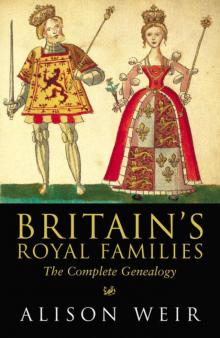 Britain's Royal Families: The Complete Genealogy
Britain's Royal Families: The Complete Genealogy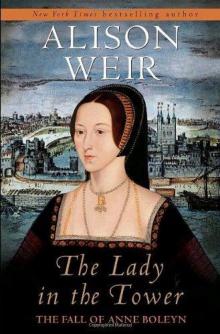 The Lady in the Tower: The Fall of Anne Boleyn
The Lady in the Tower: The Fall of Anne Boleyn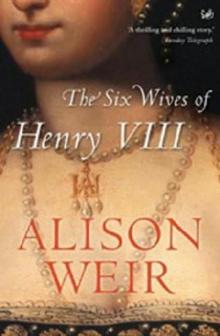 Six Wives of Henry VIII
Six Wives of Henry VIII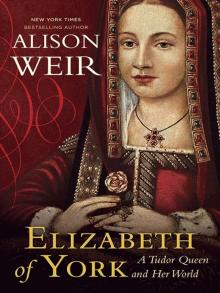 Elizabeth of York: A Tudor Queen and Her World
Elizabeth of York: A Tudor Queen and Her World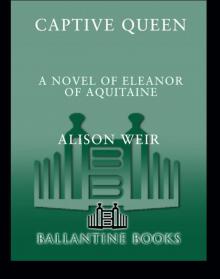 Captive Queen
Captive Queen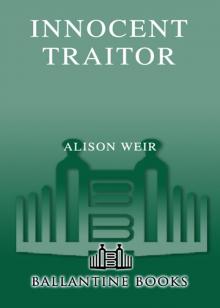 Innocent Traitor
Innocent Traitor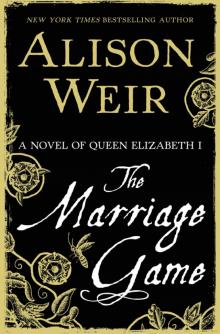 The Marriage Game
The Marriage Game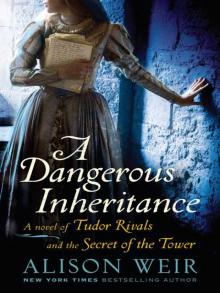 A Dangerous Inheritance
A Dangerous Inheritance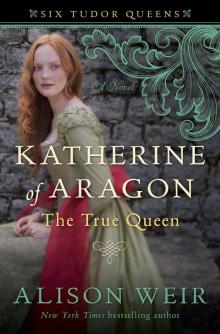 Katherine of Aragón: The True Queen
Katherine of Aragón: The True Queen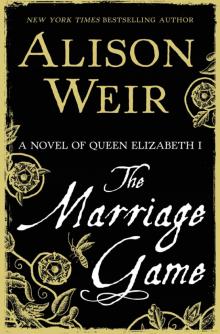 The Marriage Game: A Novel of Queen Elizabeth I
The Marriage Game: A Novel of Queen Elizabeth I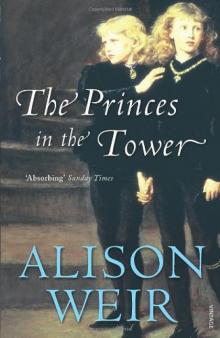 Princes in the Tower
Princes in the Tower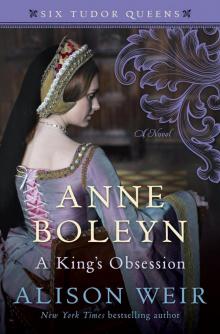 Anne Boleyn: A King's Obsession
Anne Boleyn: A King's Obsession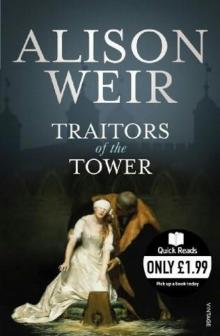 Traitors of the Tower
Traitors of the Tower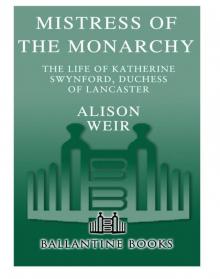 Mistress of the Monarchy: The Life of Katherine Swynford, Duchess of Lancaster
Mistress of the Monarchy: The Life of Katherine Swynford, Duchess of Lancaster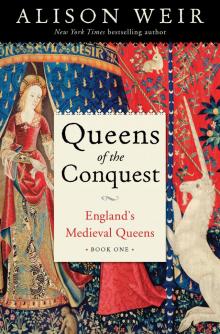 Queens of the Conquest: England’s Medieval Queens
Queens of the Conquest: England’s Medieval Queens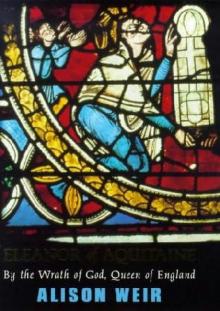 Eleanor of Aquitaine: A Life
Eleanor of Aquitaine: A Life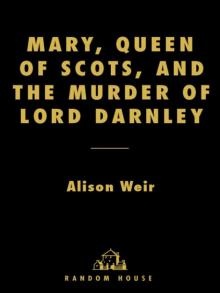 Mary, Queen of Scots, and the Murder of Lord Darnley
Mary, Queen of Scots, and the Murder of Lord Darnley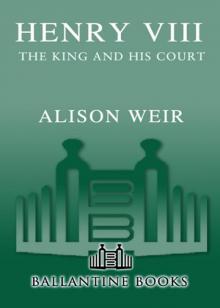 Henry VIII: The King and His Court
Henry VIII: The King and His Court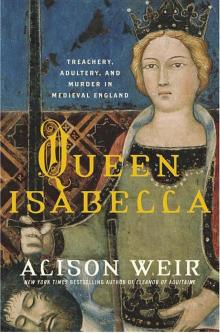 Queen Isabella: Treachery, Adultery, and Murder in Medieval England
Queen Isabella: Treachery, Adultery, and Murder in Medieval England Katheryn Howard, the Scandalous Queen
Katheryn Howard, the Scandalous Queen Arthur- Prince of the Roses
Arthur- Prince of the Roses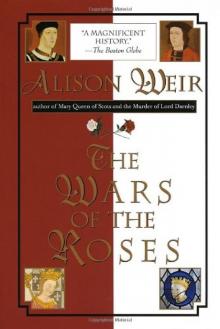 The Wars of the Roses
The Wars of the Roses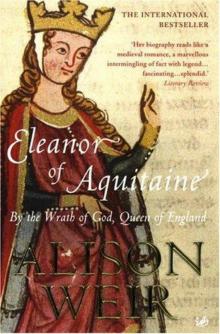 Eleanor of Aquitaine: By the Wrath of God, Queen of England
Eleanor of Aquitaine: By the Wrath of God, Queen of England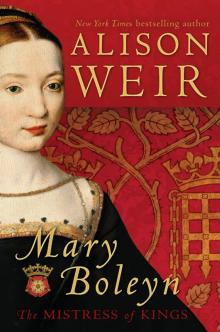 Mary Boleyn: The Great and Infamous Whore
Mary Boleyn: The Great and Infamous Whore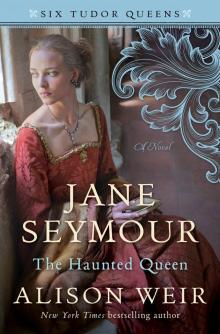 Jane Seymour: The Haunted Queen
Jane Seymour: The Haunted Queen Anna of Kleve, the Princess in the Portrait
Anna of Kleve, the Princess in the Portrait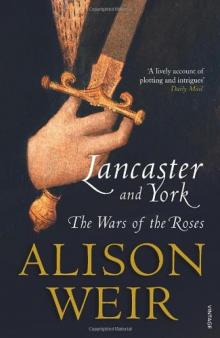 Lancaster and York: The Wars of the Roses
Lancaster and York: The Wars of the Roses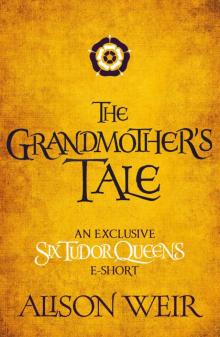 The Grandmother's Tale
The Grandmother's Tale The Princess of Scotland (Six Tudor Queens #5.5)
The Princess of Scotland (Six Tudor Queens #5.5)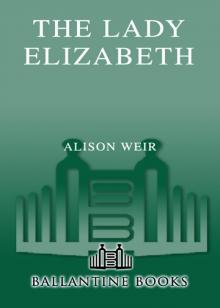 The Lady Elizabeth
The Lady Elizabeth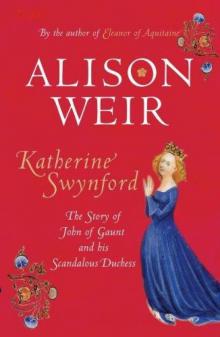 Katherine Swynford: The Story of John of Gaunt and His Scandalous Duchess
Katherine Swynford: The Story of John of Gaunt and His Scandalous Duchess The Curse of the Hungerfords
The Curse of the Hungerfords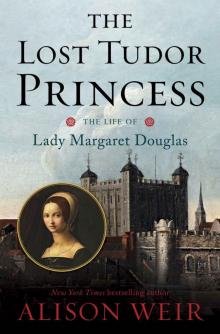 The Lost Tudor Princess: The Life of Lady Margaret Douglas
The Lost Tudor Princess: The Life of Lady Margaret Douglas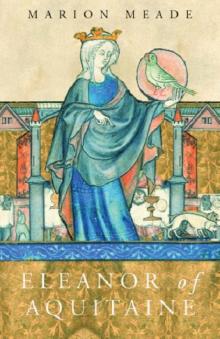 Eleanor of Aquitaine
Eleanor of Aquitaine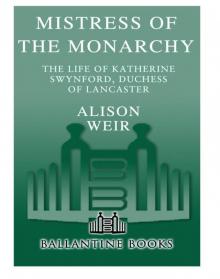 Mistress of the Monarchy
Mistress of the Monarchy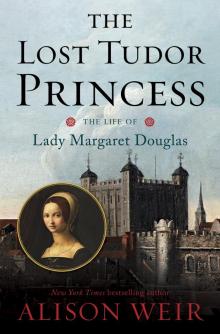 The Lost Tudor Princess
The Lost Tudor Princess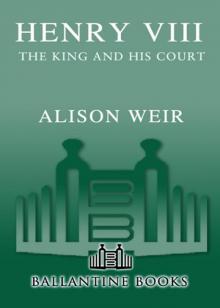 Henry VIII
Henry VIII Anne Boleyn, a King's Obsession
Anne Boleyn, a King's Obsession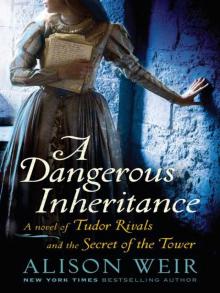 A Dangerous Inheritance: A Novel of Tudor Rivals and the Secret of the Tower
A Dangerous Inheritance: A Novel of Tudor Rivals and the Secret of the Tower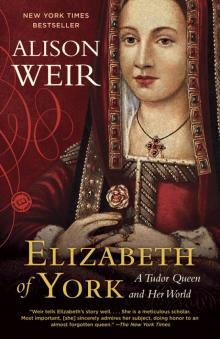 Elizabeth of York
Elizabeth of York Katherine of Aragon, the True Queen
Katherine of Aragon, the True Queen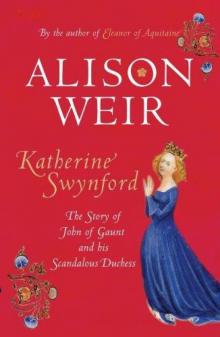 Katherine Swynford
Katherine Swynford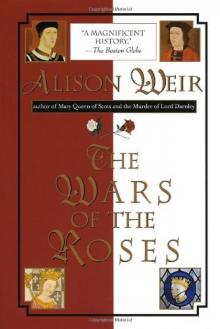 Wars of the Roses
Wars of the Roses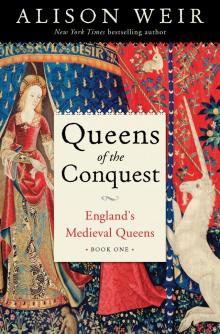 Queens of the Conquest
Queens of the Conquest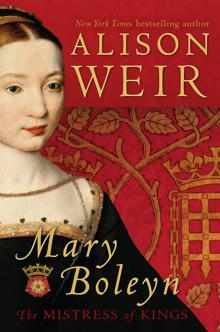 Mary Boleyn
Mary Boleyn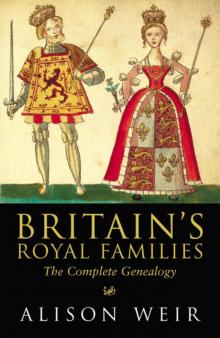 Britain's Royal Families
Britain's Royal Families The Tower Is Full of Ghosts Today
The Tower Is Full of Ghosts Today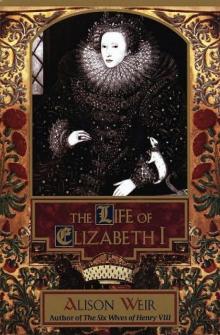 Life of Elizabeth I
Life of Elizabeth I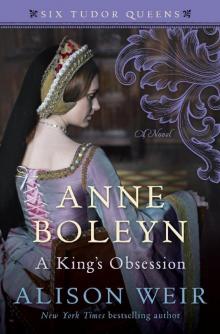 Anne Boleyn A King's Obssession
Anne Boleyn A King's Obssession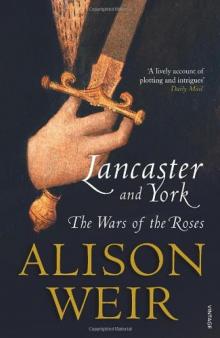 Lancaster and York
Lancaster and York Jane Seymour, the Haunted Queen
Jane Seymour, the Haunted Queen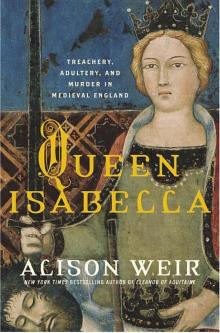 Queen Isabella
Queen Isabella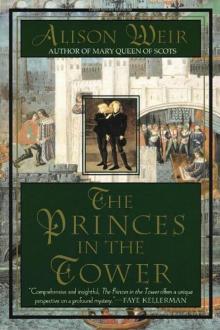 The princes in the tower
The princes in the tower